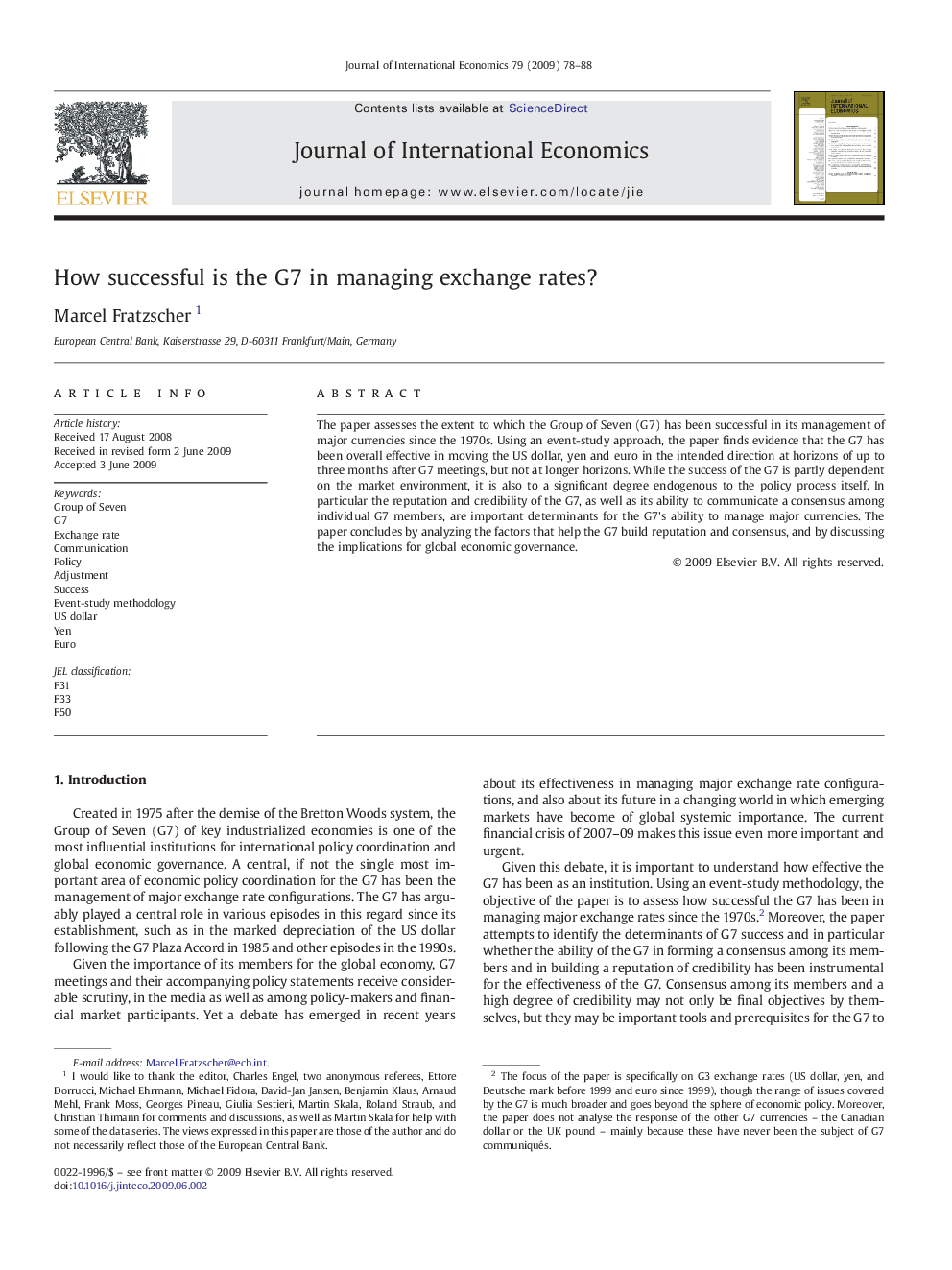| Article ID | Journal | Published Year | Pages | File Type |
|---|---|---|---|---|
| 962661 | Journal of International Economics | 2009 | 11 Pages |
Abstract
The paper assesses the extent to which the Group of Seven (G7) has been successful in its management of major currencies since the 1970s. Using an event-study approach, the paper finds evidence that the G7 has been overall effective in moving the US dollar, yen and euro in the intended direction at horizons of up to three months after G7 meetings, but not at longer horizons. While the success of the G7 is partly dependent on the market environment, it is also to a significant degree endogenous to the policy process itself. In particular the reputation and credibility of the G7, as well as its ability to communicate a consensus among individual G7 members, are important determinants for the G7's ability to manage major currencies. The paper concludes by analyzing the factors that help the G7 build reputation and consensus, and by discussing the implications for global economic governance.
Related Topics
Social Sciences and Humanities
Economics, Econometrics and Finance
Economics and Econometrics
Authors
Marcel Fratzscher,
